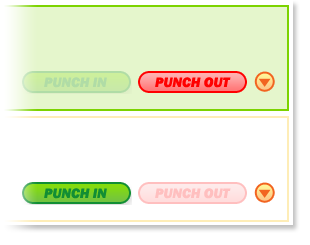Call it lazy blogging, but the beginning of a new year is a perfect opportunity to write a list post. I’m not going to call the list below predictions for 2008 as there is absolutely no scientific basis for any of this, so I’m calling it Hot or Not – stuff that I think/want to be hot in 2008 and stuff that I would love to see head to the big TCP/IP stack in the sky.
OAuth: Hot. Anything that brings some sort of order to the big bad world of web APIs is a good thing. If you haven’t seen it yet, it is a specification that describes a method for token-based access to third party applications. So now there is really no excuse for that confounding social network to ask for your usernames and passwords to all of your other confounding social networking sites, just so it can spam have access to all of your friends.
Confounding Social Network sites: Not. OK. That is enough. I am over been bamboozed at the sight of another social network that has no direction, meaning or business model. The concept behind a social network is cool – we used to call them forums, remember – but it is now officially out of control. To the “entrepreneurs” behind them – stop trying to kill Facebook, they have more money than you and careless less about their users than you ever could (Exception: Spock – You are still Satan’s spawn).
Software as a Service: Hot. It’s kinda like Web2.0 but this time with meaning. Bring back computing to what it was meant for – helping humans to do what they do. The web is the perfect delivery method for a lot of the desktop software we use everyday. Google has already shown us what can be done with apps like GMail and Google Docs and there is a myriad of web applications that have made the leap (If I can build one, anyone can). Pay for what you use, don’t worry about license fees any more, don’t worry about what happens when you hard drive crashes, or about deploying to all 500 machines in your organisation.
Advertising as a Business Mode: Not. The darling child of Web2.0/New Media/Social Networks. Unless your site is already doing the traffic of Google/YouTube/Facebook or your are a porn site, go and erase the “we will pay for our hosting via advertising” line from you business plan. Seconds thoughts, if you are Facebook, you should probably do the same (Nice work on beacon – at what point did that actually seem like a good idea?). Advertising only works if there is eyeballs a LOT of eyeballs on pages and if your target audience is the type that clicks on ads. And since every man and his dog has released a social network this week, you aren’t a unique snowflake. Get a real business plan first.
Mashups: Hot. Yeah, I know – these have been around since the first beta of Web 2.0 but it has never really extended much beyond adding a Google Map to your site. I think 2008 and will see some really cool productivity apps built leveraging the webservices of other web sites. I think that it may even spill over in to the corporate world – I’d love to see company intranets using webservices to customise workflows.
Getting VC funding then hoping to sell to : Not. Now, I have no problem with the concept of funding, or the hopes and dreams of having a large company with a bank balanace bigger than your phone number (including country and area code) throw you some bones, per se. Where I do draw the line, however is pitching with a business plan that can’t really pay back a return to the investor unless the business get bought out. Mind you, the investors really should know better – or maybe they are just much smarter than I am, who knows. Regardless, when this whole thing collapses in on it’s self, I’ll be dancing like it is on sale for $19.99…
Mobile: Hot. This is the next frontier for the web. Everyone has a mobile (some people two or three) and they are generally on their person at all times. Extend the SaaS idea to these small devices and you really will be able to get your stuff done when it suits. Again, this isn’t new, but there have been some advancements in technology and some new players who understand the web much better (that’s Google if you were wondering). I think 2008 is the year that see the mobile platform as a first-class netizen rather than something that the work experience kid gets to work on.
Using user data with out permission: Not: You would have by now seen my (MANY) rants about Spock and Facebook. Those playing in the dirty, back alleyways of social networking really need to take a long hard look at themselves. It’s my data, and I’d prefer it if you didn’t sell my browsing habits to the highest bigger. And don’t even think about scraping my data from other sites without my permission – they asked nicely, you didn’t.
Company-as-a-Service: Hot. Haven’t heard of this? That’s because I just made it up. We have seen Software-as-a-Service, Hardware-as-a-Service (eg Amazon EC2), so why not have have companies that can shrink, grow and churn as required? There are so many freelancers and consultants out there, as well as a huge number of micro businesses. If they all grouped together, they would be able to work on sites ranging from the very-very big to the very-very small. Many places kind of do this already (this is why contracting was invented) but I can see this working in a more peer-to-peer sort of way – you aren’t contracting for someone, you are contracting with someone (there is a remarkable difference).
New years lists: Not.
Leave a comment – Is this Hot or Not ;)

 Enter
Enter